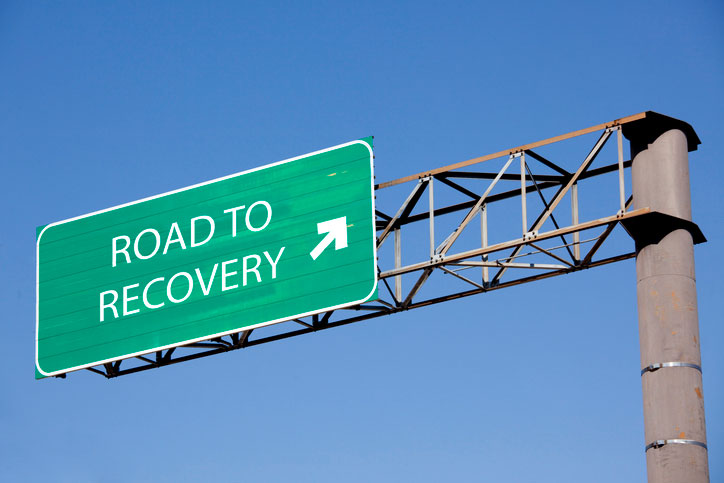Written by Dr. Emily R. Thornton, PhD, LCADC , Last Updated: November 5, 2025
Graduate certificates in addiction counseling provide 6-18 months of specialized coursework for professionals with bachelor's or master's degrees. They can help meet state licensing requirements for SUD counselor credentials when combined with your existing degree, offering a faster, focused alternative to earning another full degree.
Table of Contents
- Who Are Post-Bachelor's Graduate Certificates in Substance Use Disorder Counseling Right For?
- You Can Expect Your Substance Abuse Graduate Certificate to Meet Your State's Exact Certification Requirements, and Give You a Lot More
- How a Graduate Certificate in Addictions and Chemical Dependency Counseling Can Meet Certification Requirements in Your State

Treating substance use disorders is a serious business that requires serious education. Although it's possible to get started in the field in many states with only an associate degree, or even a basic undergraduate certificate, higher level studies give you the tools to get to better outcomes and more advanced licensing qualifications.
A degree is a must-have in most states for substance abuse counselor licensing, but it doesn't have to be in addiction therapy specifically. In fact, many states accept a wide range of degrees. To check that box, you can pick up a bachelor's in everything from special education to juvenile justice.
But the degree is not the only qualification. A specific number of hours in certain subjects of instruction are also needed.
That's where graduate certificates in substance abuse counseling come in. They offer a path to more advanced licensing and practice for people coming from a wide range of backgrounds. And they give you a quick shot of knowledge, skills, and tools to help patients with every kind of disorder, in every corner of the country.
Who Are Post-Bachelor's Graduate Certificates in Substance Use Disorder Counseling Right For?

Certificate programs are short courses of study that wrap up a handful of college-level classes on a specific topic for a specialized education in substance use disorders (SUD). Graduate (post-bachelor's) certificates offer courses that are taught at a high level, designed for students who have already earned a bachelor's degree.
Most graduate-level certificate programs take 6-12 months to complete, though some extend up to 24 months.
Many graduate certificates in substance abuse or addiction therapy are designed to meet state SUD licensure educational requirements, but not all do. Always verify program recognition with your state licensing board.
While those credentials are handled on a state-by-state basis, they almost always include a combination of requirements including:
- A certain level of educational attainment
- A set number of hours studying on specific subjects
- Passing a standardized test
If you've already earned the required degree level, but in another major, a substance abuse certificate will cover the educational hours needed for licensure.
A graduate certificate won't help you with the required degree level, but it can cover the educational hours needed, and prepare you to pass the required tests in your state.
Graduate-Level Substance Abuse Certificate Programs Help Advance Careers Along Different Tracks
You will usually find these certificates offered by schools that also offer full master's degree programs in substance abuse or addiction studies. They have titles like:
- Graduate Certificate in Substance Use Disorders
- Graduate Certificate in Addictions
- Graduate Certificate in Substance Abuse Counseling
- Graduate Certificate in Substance Abuse
- Interdisciplinary Graduate Certificate in Substance Abuse
- Alcohol & Substance Abuse Graduate Certificate
- Post-Baccalaureate Certificate in Addictions Studies
- Graduate Certificate in Drug and Addiction Studies
- Post-Baccalaureate Certificate in Systemic Treatment of Addictions
These certificates are a good choice for anyone who has earned a degree in a related field, but didn't cover the specific coursework in substance use disorder treatment. That can include anyone who:
- Majored in a general human services field as an undergraduate but only later decided to go into addiction therapy
- Earned a bachelor's degree in psychology, counseling, or social work and started working in the field but have decided to switch to substance abuse counseling
- Has earned a master's degree and become licensed in a related field like counseling or social work but now needs to qualify for SUD counseling licensure
In that last case, some states have alternative pathways to SUD credentialing for currently licensed professionals in related fields. In those states, you sometimes find a split in graduate certificate programs between those aimed at those professionals versus people coming in without any current license.
How Graduate Substance Abuse Certificate Programs May Fit into Your Education as a Social Worker, Counselor, or Other Professional

Certificates aren't always something you come to after you've completed your schooling, however.
In other cases, graduate certificates are offered alongside full master's degree programs. For example, someone pursuing a Master of Social Work degree may simultaneously earn a Graduate Certificate in Addiction and Substance Use Related Disorders to qualify for both LCSW and clinical SUD counseling licensure. These are often aimed at students in field like psychology, counseling, or educational psychology, and may be offered by those departments.
You may run across a Certificate in Addiction Science or Social Work Practice in Addiction Graduate Certificates which are aimed at providing policy-level and advocacy training more than clinical skills. While very useful in their own way, you'll want to steer clear if delivering hands-on SUD counseling is your goal.
Post-Graduate Addiction Counseling Certificates Are Often the Choice for Licensed Social Service Professionals
 Beyond post-baccalaureate graduate certificates, you will find that some schools offer certificates in addictions and substance use disorders at the post-graduate level.
Beyond post-baccalaureate graduate certificates, you will find that some schools offer certificates in addictions and substance use disorders at the post-graduate level.
These are programs geared for students who have already earned a master's degree and want to build on that work. They come with coursework that can be even more advanced, diving into areas that intersect with addiction studies, covering topics like neurobiology, advanced psychopharmacology, and contemporary research in the field.
Accordingly, they have a higher bar to clear for admission. Not only is a master's degree required, but usually it needs to have had graduate-level coursework in counseling theory and technique, too.
Frequently, you will find that post-graduate substance abuse counseling certificates are aimed specifically at licensed professionals in fields such as social work and psychology that clear that high bar of preparation. These are people who have already earned a master's degree in a relevant field, and are ready to take on more advanced studies in substance use disorders than even a graduate certificate would offer. And they often lead to licensure in substance abuse counseling along the special tracks that are available in some states for those professionals.
They can be an excellent choice for anyone coming in with a master's degree who wants the highest level of training in substance abuse treatment, however. Just be sure that they fill in the right gaps in your education to meet licensing requirements in your state.
You Can Expect Your Substance Abuse Graduate Certificate to Meet Your State's Exact Certification Requirements, and Give You a Lot More

Because these programs are almost always aimed specifically at qualifying for state licensure or certification as an addiction counselor, the coursework is built around the educational requirements for those credentials. That means both the number of class hours and the subject matter will be pretty closely aligned from school to school.
Certificates aren't the same as degrees, so your experience will be a little different. Still, these are popular programs for professionals who are either bringing up their skill level in SUD counseling or shifting into the profession from other roles, so schools have learned to deliver fast but effective training. You'll get it complete with:
- Faculty expertise and experience - With limited time to get familiar with your instructors and not as much face-time as a degree program, excellent professors are a must-have in certificate programs. Your instructors will combine on-the-job experience in addiction counseling with strong academic and teaching skills, who can get the point across on the first try and keep you on track in a short course.
- Academic counseling and support services - With not much time to learn the ropes, schools throw strong academic support and counseling services behind certificate programs. You have less time to get familiar with school standards and services, so you will be happy to have counselors and services who can help you find what you need and answer questions quickly.
- Counseling community connections - While not all certificates offer experiential placements, you will benefit from schools that maintain strong ties to regional addiction counseling services either way. The cross-pollination of ideas and experience has strong value, particularly since you are hitting the streets faster than most students. The connections you find can help you get jobs or find mentors in exactly the areas where you plan to specialize.
Focused and Specific Coursework Characterize Addiction Counselor Certificate Studies
Although the coursework you'll get will be at the graduate level, just like a master's degree, the curriculum for these certificates covers fairly basic subject matter. Since they are mostly aimed at individuals coming into the profession from other fields, they have to hit topics like:
- Counseling Methods and Theory
- Cultural, Social, and Historical Perspectives on Substance Use Disorders
- Psychology and Pharmacology of Addiction
- Group Counseling
- Addressing Co-Occurring Disorders
- Crisis Intervention and Recovery
- Laws and Ethics for Addiction Counseling Professionals
These cover all the essentials to get started in SUD counseling at a high level, and they will typically hit all the necessary educational requirements for licensure. They do not, however, go into as much depth or offer as many options for specialization as a full graduate program. Some elective options may be offered, though, but usually no more than one or two courses.
Some certificates go further, offering practicum courses that allow you to get some real-world experience in counseling. These may be built in to the certificate completion, or offered as an elective, particularly in online substance abuse counseling certificate programs which may cater to out-of-state students.
Substance Abuse Graduate Certificate Programs Must Be Recognized by State Licensing Authorities

The most vital factor in any graduate program is whether or not the certificate coursework is accepted by licensing or certification agencies where you plan to work.
It's no good getting a certificate from the finest instructors with the most up-to-date coursework and innovative lessons if it doesn't unlock a license to practice with that knowledge.
Each state handles licensing differently, so you will find a variety of ways in which they qualify educational programs to meet their standards.
- In some cases, a state agency directly accredits programs that are accepted in their state
- In other states, the work is outsourced to one or more individual and independent certification boards
- Minnesota explicitly recognizes national accreditation from NASAC, the National Addiction Studies Accreditation Commission for the Post-Baccalaureate Certificate in Substance use Disorders Counseling from Metropolitan State University. Other states may consider NASAC-accredited programs on a case-by-case basis.
Either way, the only way to ensure that your hard work and studies will count toward an official credential is to make sure the program is on an approved list. It's usually possible to directly appeal to licensing agencies to accept certificates from schools that aren't on the list, a process that involves a close curriculum review by the licensing body.
Earning a Substance Abuse Counselor Graduate Certificate Online Saves Time and Headaches
Online substance abuse counselor certificate programs are a natural fit for most of the people who are looking at graduate certificates in the first place. These are all aimed at students who already have a four-year degree behind them. In many cases, they're coming back to school after already making a start in life and work.
That means dealing with other responsibilities and obligations in life. School can't always come first.
Online certificates handle that clash by offering asynchronous classes, which can be streamed or reviewed at any time, from any location. Catching up on a streamed lecture while on a jog, or finishing up a project on your lunch break at work can help you fit in the demands of education while keeping your life on track.
Because online also means remote, it also means you don't have to pick up and relocate, or even drive all the way across town, to complete these certificates. That adds more time and convenience back into your life.
Finally, not having to be physically present in a classroom also opens up the choices of schools you can attend. Halfway across town and halfway across the country are the same thing with online studies.
Of course, any practicum or other experiential parts have to be handled in your own area. SUD counseling is a very hands-on profession. But most substance abuse certificate online programs excel at getting you hooked up with local opportunities that fulfill their requirements.
How a Graduate Certificate in Addictions and Chemical Dependency Counseling Can Meet Certification Requirements in Your State

While you can go through a graduate certificate program in addiction counseling just for the knowledge and skill-building opportunities to make you more effective in your current job, most people will be coming into these programs to qualify for higher level positions in SUD counseling. And qualifying for those jobs means earning a higher level of licensure.
Since, by definition, you will have had to earn a bachelor's degree before becoming eligible for one of these certificates, in most states completing a graduate certificate alongside a qualifying degree can make you eligible for a certification level. However, requirements vary by state. If you have already earned a master's degree in a human services or behavioral health field, a graduate or post-graduate certificate will then open the door to advanced clinical licensing in SUD counseling, granting you the authority to work independently or as a supervisor.
According to SAMHSA, the Substance Abuse and Mental Health Services Administration:
- A bachelor's degree corresponds to the model for licensure at the level of full SUD counselor. Those positions typically still practice under some degree of supervision.
- A master's degree aligns with independent clinical SUD counselors, who do not require supervision. In fact, in some states they may supervise other counselors.
A graduate, or post-baccalaureate certificate simply adds the necessary field-specific courses you need. You'll still have to meet the base degree requirement for the license you're applying for.
Addiction Counseling Graduate Certificates Offer Multiple Pathways for LMFTs, LMHCs, and LCSWs
 This is where things get a bit complicated, but stick with us, and we'll get you there.
This is where things get a bit complicated, but stick with us, and we'll get you there.
Because many professionals are coming to these graduate certificate programs from other human services roles that already require licensure, there may be multiple pathways to getting credentialed for SUD counseling.
For example, in Washington state, a Licensed Marriage and Family Therapist (LMFT) only needs 10 additional credits in addiction treatment topics to meet educational requirements to become a Substance Use Disorder Professional.
In New York, on the other hand, graduates at any degree level from any human services field can submit their transcripts with their application to be evaluated on a case-by-case basis to see if they meet educational requirements to become a Credentialed Alcoholism and Substance Abuse Counselor.
Deciphering Your Potential License Level With Addiction Counseling Graduate Certificates
So how do you know exactly what license level a graduate certificate in addiction counseling will qualify you for? It will ultimately depend on your underlying degree level.
The following chart breaks it down for you.
In some states, any level of degree, or even no degree at all, can work for some certification levels. We list those certifications in black below.
We've color-coded the other cases, where tacking a graduate certificate on to a bachelor's degree (in green) or a master's degree (in orange) opens up other types of licensure.
In a few cases, a particular degree isn't specified, and we note those accordingly.
State |
Degree |
Titles |
Alaska |
Any Degree Level |
Chemical Dependency Counselor I/II |
Alabama |
Bachelor/Master |
National Certified Addiction Counselor II/Advanced Alcohol & Drug Counselor |
Arkansas |
Bachelor/Master |
Licensed Associate Alcoholism & Drug Abuse Counselor/Advanced Certified Alcohol & Drug Counselor/Licensed Alcoholism & Drug Abuse Counselor |
Arizona |
Bachelor/Master |
Licensed Associate Substance Abuse Counselor/Licensed Independent Substance Abuse Counselor/Advanced Alcohol & Drug Counselor |
California |
Bachelor/Master |
Certified Alcohol Drug Counselor II/Licensed Advanced Alcohol Drug Counselor |
Colorado |
Bachelor/Master |
Certified Addiction Counselor III/Licensed Addiction Counselor |
Connecticut |
No Degree Specified/Master |
Certified Alcohol & Drug Counselor/Certified Addiction Counselor/Licensed Alcohol & Drug Counselor |
Washington DC |
Any Degree Level/Bachelor |
Certified Addiction Counselor I/Certified Addiction Counselor II |
Delaware |
Any Degree Level/Master |
Certified Alcohol & Drug Counselor/Certified Advanced Alcohol & Drug Counselor/Licensed Alcohol & Drug Counselor |
Florida |
Bachelor/Master |
Certified Addiction Professional/Certified Master's Level Addiction Professional |
Georgia |
Bachelor/Master |
Certified Addiction Counselor II/Certified Advanced Alcohol & Drug Counselor |
Hawaii |
Any Degree Level |
Certified Substance Abuse Counselor |
Iowa |
Any Degree Level/Master |
Certified Alcohol & Drug Counselor/International Advanced Alcohol & Drug Counselor |
Idaho |
Any Degree Level/Master |
Certified Alcohol/Drug Counselor/Advanced Certified Alcohol/Drug Counselor |
Illinois |
Any Degree Level/Master |
Certified Alcohol & Drug Counselor/Certified Advanced Alcohol & Other Drug Counselor |
Indiana |
Bachelor/Master |
Licensed Addiction Counselor/Certified Alcoholism & Drug Abuse Counselor IV/Licensed Clinical Addiction Counselor Associate/Licensed Clinical Addiction Counselor |
Kansas |
Bachelor/Master |
Licensed Addiction Counselor/Licensed Masters Addiction Counselor/Licensed Clinical Addiction Counselor |
Kentucky |
Bachelor/Master |
Certified Alcohol & Drug Counselor/Licensed Clinical Alcohol & Drug Counselor Associate/Licensed Clinical Alcohol & Drug Counselor |
Louisiana |
Bachelor/Master |
Certified Addiction Counselor/Certified Advanced Alcohol & Other Drug Counselor/Licensed Addiction Counselor |
Massachusetts |
Any Degree Level/Master |
Certified Alcohol & Drug Counselor/Licensed Alcohol & Drug Counselor I/II |
Maryland |
Bachelor/Master |
Certified Chemical Dependency Counselor/Licensed Alcohol & Drug Counselor/Licensed Clinical Alcohol & Drug Counselor |
Maine |
Any Degree Level |
Certified Alcohol & Drug Counselor/Licensed Alcohol & Drug Counselor |
Michigan |
Any Degree Level/Master |
Certified Alcohol & Drug Counselor/Certified Advanced Alcohol & Drug Counselor |
Minnesota |
Bachelor/Master |
Licensed Alcohol & Drug Counselor/Certified Advanced Alcohol & Drug Counselor |
Missouri |
Any Degree Level |
Certified Alcohol & Drug Counselor |
Mississippi |
Bachelor/Master |
Certified Alcohol & Drug Counselor I/Certified Advanced Alcohol & Drug Counselor |
Montana |
Any Degree Level |
Licensed Addiction Counselor |
North Carolina |
Any Degree Level/Master |
Certified Substance Abuse Counselor/Licensed Clinical Addiction Specialist |
North Dakota |
Bachelor/Master |
Licensed Addiction Counselor/Licensed Clinical Addiction Counselor/Licensed Master Addiction Counselor |
Nebraska |
Any Degree Level |
Provisionally Licensed Alcohol & Drug Counselor/Licensed Alcohol & Drug Counselor |
New Hampshire |
Any Degree Level/Master |
Licensed Alcohol & Drug Counselor/Master Licensed Alcohol & Drug Counselor |
New Jersey |
Any Degree Level/Master |
Certified Alcohol & Drug Counselor/Licensed Clinical Alcohol & Drug Counselor |
New Mexico |
No Degree Specified/Any Degree Level |
Certified Alcohol & Drug Counselor/Licensed Alcohol & Drug Abuse Counselor |
Nevada |
Bachelor/Master |
Certified Alcohol & Drug Abuse Counselor/Licensed Alcohol & Drug Abuse Counselor/Licensed Clinical Alcohol & Drug Abuse Counselor |
New York |
Bachelor/Master |
Advanced Credentialed Alcoholism/Substance Abuse Counselor II/Master Credentialed Alcoholism & Substance Abuse Counselor |
Ohio |
Any Degree Level/Bachelor/Master |
Licensed Chemical Dependency Counselor II/Licensed Chemical Dependency Counselor II/Licensed Independent Chemical Dependency Counselor |
Oklahoma |
Bachelor/Master |
Certified Alcohol & Drug Counselor/Licensed Alcohol & Drug Counselor |
Oregon |
Bachelor/Master |
Certified Alcohol Drug Counselor II/Certified Alcohol Drug Counselor III |
Pennsylvania |
Any Degree Level/Bachelor/Master |
Certified Associate Addiction Counselor/Certified Alcohol & Drug Counselor/Certified Advanced Alcohol & Drug Counselor |
Rhode Island |
Any Degree Level/Master |
Certified Alcohol & Drug Counselor/Certified Advanced Alcohol & Drug Counselor |
South Carolina |
Bachelor |
Certified Addictions Counselor I/II |
South Dakota |
Any Degree Level/Master |
Certified Addiction Counselor/Licensed Addiction Counselor |
Tennessee |
Any Degree Level/Bachelor |
Level I Licensed Alcohol & Drug Abuse Counselor/Level II Licensed Alcohol & Drug Abuse Counselor |
Texas |
Any Degree Level/Master |
Alcohol & Other Drug Abuse Counselor/Licensed Chemical Dependency Counselor/Advanced Alcohol & Drug Counselor |
Utah |
Bachelor/Master |
Certified Advanced Substance Use Disorder Counselor/Advanced Alcohol & Drug Counselor |
Virginia |
Bachelor/Master |
Certified Substance Abuse Counselor/Certified Advanced Alcohol & Drug Counselor/Licensed Substance Abuse Treatment Practitioner |
Vermont |
Bachelor/Master |
Certified Alcohol & Drug Abuse Counselor/Licensed Alcohol & Drug Abuse Counselor |
Washington |
Any Degree Level |
Substance Use Disorder Professional |
Wisconsin |
No Degree Specified/Any Degree Level |
Substance Abuse Counselor/Clinical Substance Abuse Counselor |
West Virginia |
Any Degree Level/Master |
Alcohol & Drug Counselor/Advanced Alcohol & Drug Counselor |
Wyoming |
Bachelor/Master |
Certified Addictions Practitioner/Provisional Addictions Therapist/Licensed Addictions Therapist |
Of course, you also have to consider what the graduate certificate was designed for based on the amount and type of courses they cover. Some may be intended only to qualify you for regular SUD counselor licensure, while others might have the additional hours needed for more advanced clinical or independent practice licenses.
A post-degree certificate in substance abuse counseling on top of the degree you already have can really move the needle on your ability to make a difference in the lives of patients and their loved ones. And that's an investment worth making in every state.
Key Takeaways
- Graduate certificates require a bachelor's degree, post-graduate certificates require a master's degree
- Certificates provide specific SUD coursework hours that can help meet state licensing educational requirements
- Most graduate-level certificate programs take 6-12 months and include 12-18 credits of focused addiction counseling courses
- State licensing requirements vary significantly - verify program recognition in your state before enrolling
- Online options offer flexibility for working professionals returning to school
- Licensed professionals (LMFT, LCSW, LMHC) often have alternative, faster pathways to SUD credentials
Ready to Find Your Path to SUD Counselor Certification?
Explore state-specific requirements and compare degree options to find the right educational pathway for your career goals.
View State Requirements







